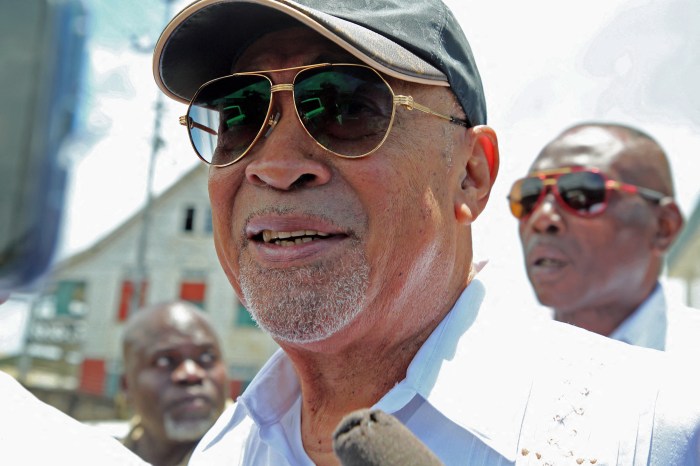More than a month after the parliament in Suriname approved an amnesty barring incumbent President Desi Bouterse and other top officials from being jailed for mass murders and other crimes that were allegedly committed during military rule, critics of his administration are not allowing the issue to rest and are doing everything to keep it in the regional and international consciousness.
The latest group to speak out negatively on the issue would be Catholic Bishops from across the Caribbean who at the weekend said they were joining with other international groups in condemning the assembly for recently granting amnesty from possible jail time to Bouterse and a group of ex soldiers for the 1982 mass murders of 15 government opponents and a string of other atrocities allegedly committed during military rule from 1980 to 1992, saying ongoing criminal trials should continue unabated.
The Bishops of the Antilles Episcopal Conference which met in Guyana late last month said in a statement that they have “noted with concern the adoption” by the 51-seat parliament of an amnesty for the alleged perpetrators of the 1982 killings of journalists, clergymen, academics and labor leaders, noting that the amnesty could have “a direct impact on the trial of current President Bouterse.”
The mass murder trial of Bouterse, 66, and more than 20 ex-soldiers and civilian leaders was nearing an end when pro-Bouterse parliamentarians successfully approved a motion in the assembly to grant amnesty to participants in the February 1980 coup, the murders two years later and the mowing down by soldiers of more than 50 residents of a Maroon Village in the southeast near the French Guiana border, among other deadly incidents.
Bouterse said during a visit to neighboring Guyana while the assembly debated the motion that it was designed to “heal the nation” rather than keep him and the others out of jail, as the issue has been hanging over the country for “the past 30 years without resolution.”
“We join many other international human rights and religious groups in urging that the judiciary of Suriname continue to fulfill its obligation to uphold human rights law and assures the people and church in Suriname of the prayerful support of the AEC as they seek development, peace and justice in their country,” the Bishops said, worried that the amnesty will affect efforts to ”seek justice in cases of human rights violations committed during the period covered by the Amnesty Law.”
Civil society groups have planned marches and other forms of protest against the amnesty while The Netherlands, Suriname’s former colonizer, has withdrawn its ambassador.
For his part, Bouterse has not been shying away from verbally fighting back. He told hundreds of supporters at a weekend rally that while it was sad that the 15 died, the country must not forget that soldiers were also slaughtered by Western-backed anti government rebels during a 1986-91 effort to reverse military rule.
He spoke in response to a mass silent march planned by opposition forces to keep the issue alive, saying it is time for reconciliation and peace.
























